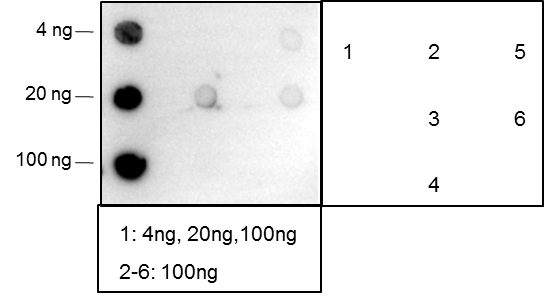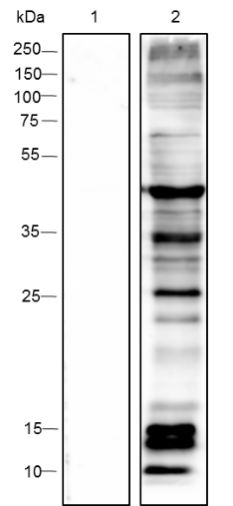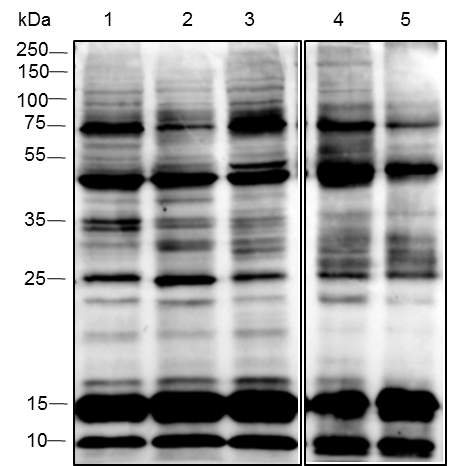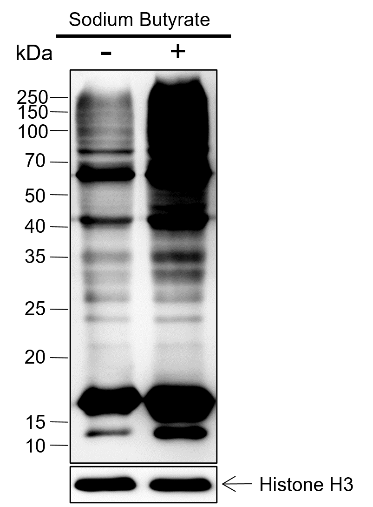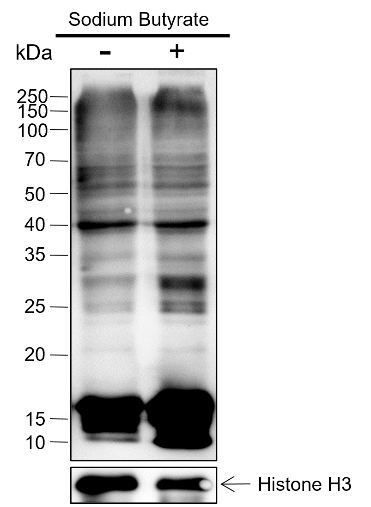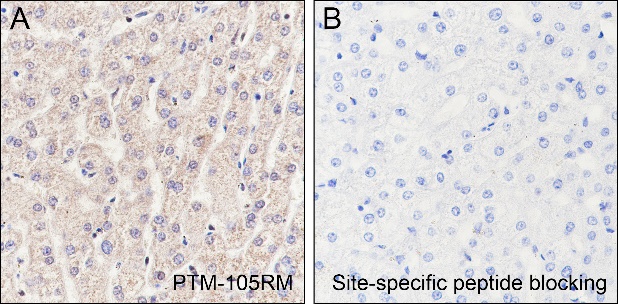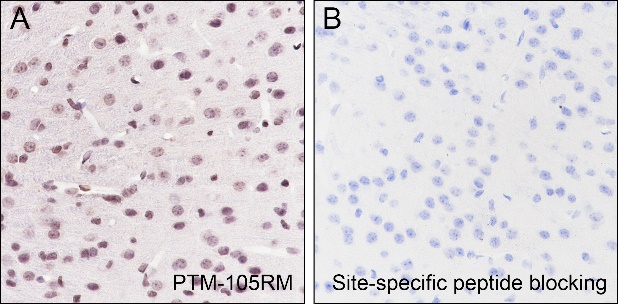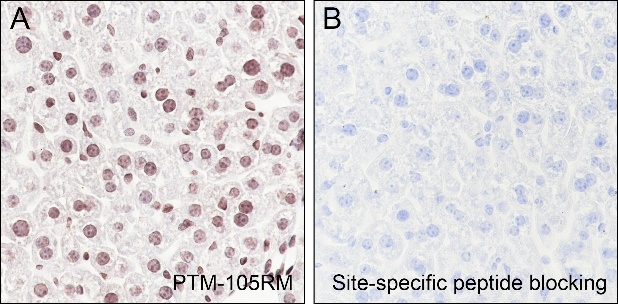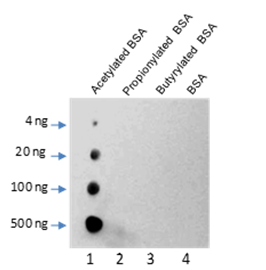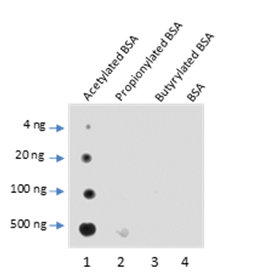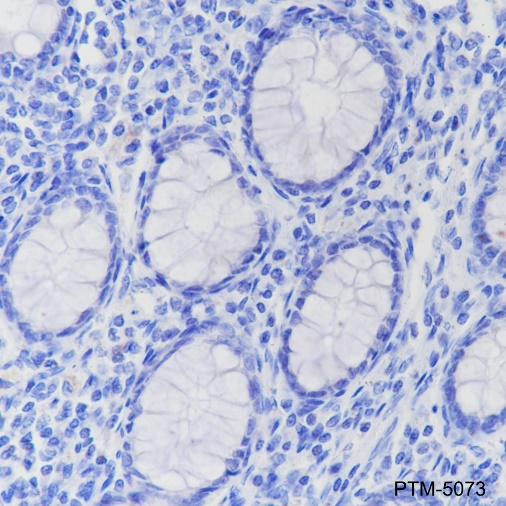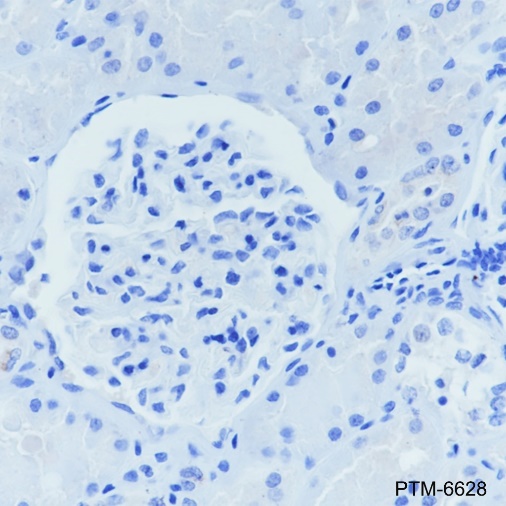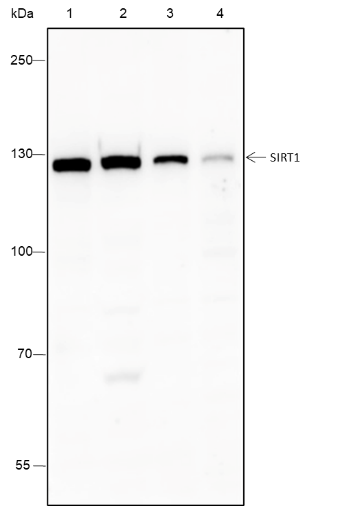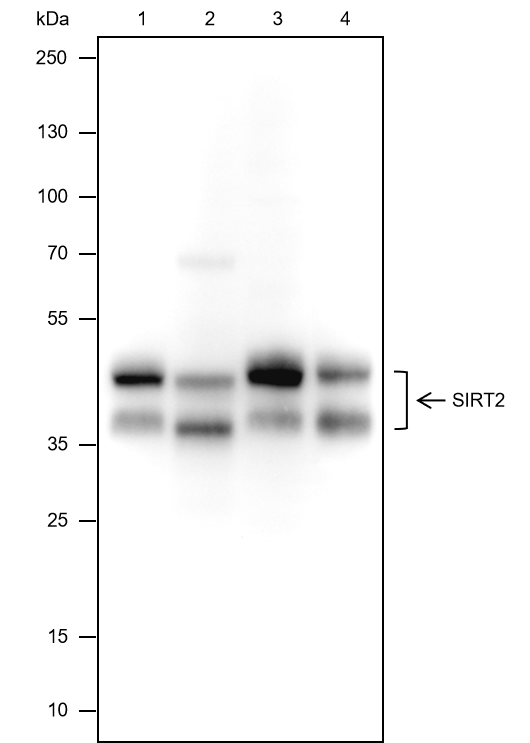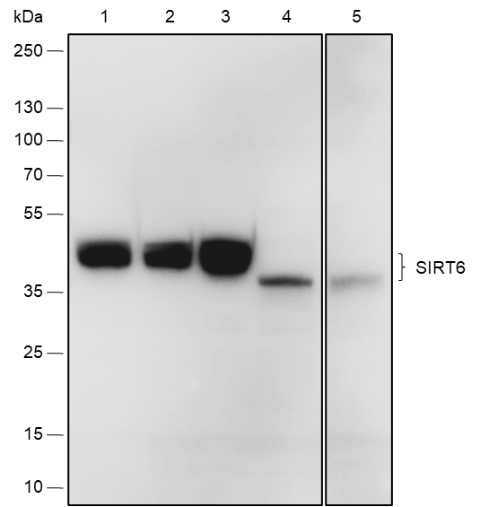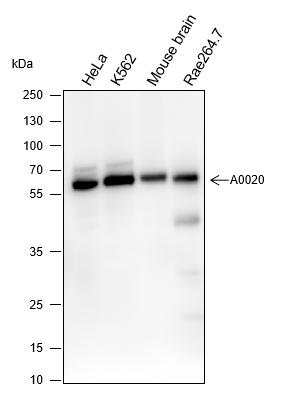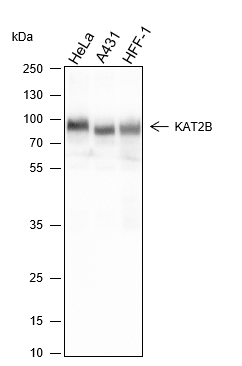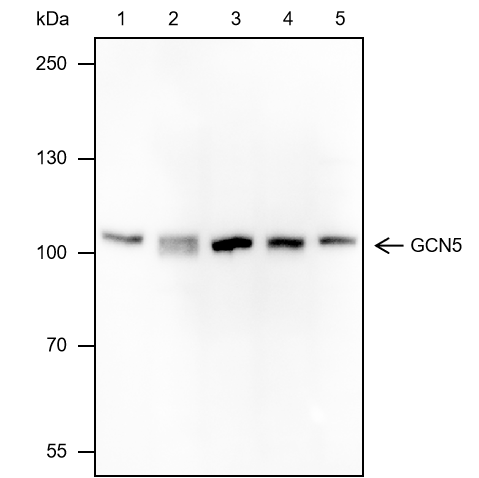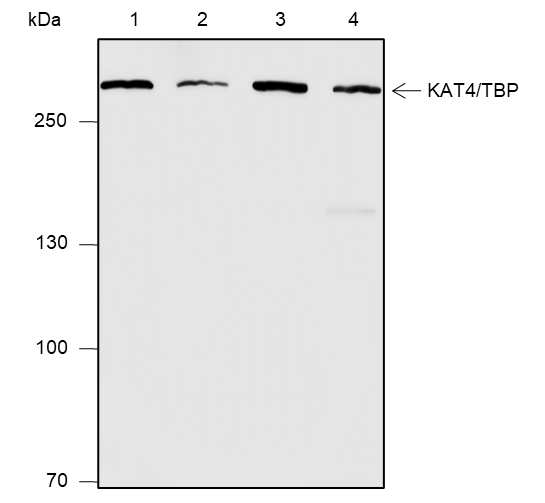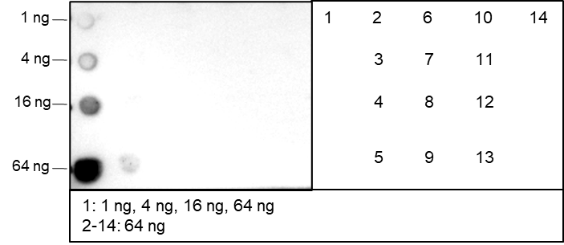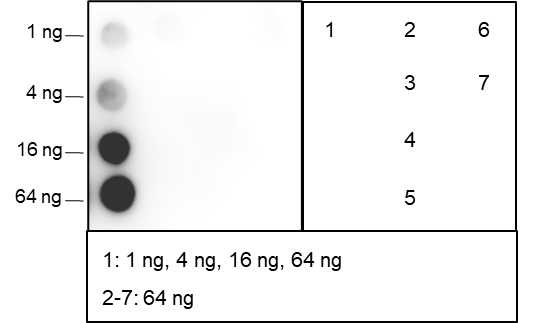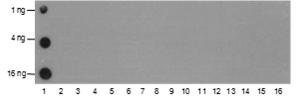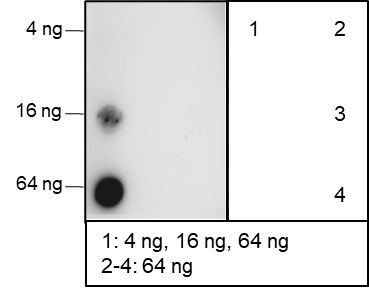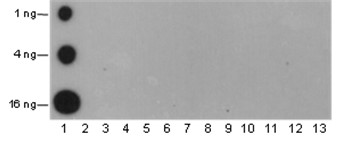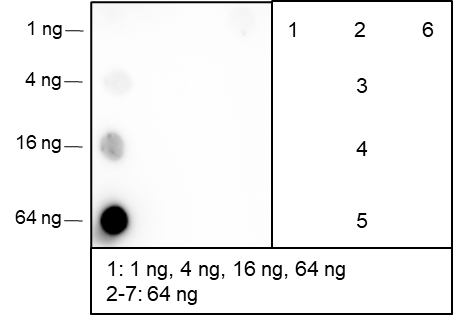-
SIRT6 knockdown alleviates keratinocyte hyperproliferation and inflammation in psoriasis via modulating acetylation of FOXO1
-
Year
2024
-
Journal
INTERNATIONAL IMMUNOPHARMACOLOGY
-
Authors
Chuantao Cheng, et al.
-
Applications
Unspecified
-
Reactivity
-
Post-translational toxin modification by lactate controls Staphylococcus aureus virulence
-
Year
2024
-
Journal
Nature Communications
-
Authors
Wang Yanan, et al.
-
Applications
Unspecified
-
Reactivity
-
Drug repurposing: An antidiabetic drug Ipragliflozin as Mycobacterium tuberculosis sirtuin-like protein inhibitor that synergizes with anti-tuberculosis drug isoniazid
-
Year
2024
-
Journal
INTERNATIONAL JOURNAL OF BIOLOGICAL MACROMOLECULES
-
Authors
Junfeng Zhen, et al.
-
Applications
Unspecified
-
Reactivity
-
Interplay between acetylation and ubiquitination controls PSAT1 protein stability in lung adenocarcinoma
-
Year
2024
-
Journal
Communications Biology
-
Authors
Liu Yuhan, et al.
-
Applications
Unspecified
-
Reactivity
-
Nicotinamide enhances Treg differentiation by promoting Foxp3 acetylation in immune thrombocytopenia
-
Year
2024
-
Journal
BRITISH JOURNAL OF HAEMATOLOGY
-
Authors
Ju Li, et al.
-
Applications
Unspecified
-
Reactivity
-
Rheb1 deficiency elicits mitochondrial dysfunction and accelerates podocyte senescence through promoting Atp5f1c acetylation
-
Year
2024
-
Journal
CELLULAR SIGNALLING
-
Authors
Qingmiao Lu, et al.
-
Applications
Unspecified
-
Reactivity
-
Inhibition of HDAC8 mitigates AKI by reducing DNA damage and promoting homologous recombination repair
-
Year
2024
-
Journal
JOURNAL OF CELLULAR AND MOLECULAR MEDICINE
-
Authors
Yanjin Wang, et al.
-
Applications
Unspecified
-
Reactivity
-
Calotropin attenuates ischemic heart failure after myocardial infarction by modulating SIRT1/FOXD3/SERCA2a pathway
-
Year
2024
-
Journal
BIOMEDICINE & PHARMACOTHERAPY
-
Authors
Zijing Chen, et al.
-
Applications
Unspecified
-
Reactivity
-
MOF-mediated acetylation of CDK9 promotes global transcription by modulating P-TEFb complex formation
-
Year
2024
-
Journal
FEBS Journal
-
Authors
Wenqi Chen, et al.
-
Applications
Unspecified
-
Reactivity
-
Hexokinase HK3-mediated O-GlcNAcylation of EP300: a key regulator of PD-L1 expression and immune evasion in ccRCC
-
Year
2024
-
Journal
Cell Death & Disease
-
Authors
Zhang Wei, et al.
-
Applications
Unspecified
-
Reactivity
-
Decrotonylation of cGAS K254 prompts homologous recombination repair by blocking its DNA binding and releasing PARP1
-
Year
2024
-
Journal
JOURNAL OF BIOLOGICAL CHEMISTRY
-
Authors
Hejiang Guo, et al.
-
Applications
Unspecified
-
Reactivity
-
Targeting the transmembrane cytokine co-receptor neuropilin-1 in distal tubules improves renal injury and fibrosis
-
Year
2024
-
Journal
Nature Communications
-
Authors
Li Yinzheng, et al.
-
Applications
Unspecified
-
Reactivity
-
Acetylation-dependent deubiquitinase USP26 stabilizes BAG3 to promote breast cancer progression
-
Year
2024
-
Journal
CANCER LETTERS
-
Authors
Jiazhou Liu, et al.
-
Applications
Unspecified
-
Reactivity
-
Activation of AMPK inhibits cervical cancer growth by hyperacetylation of H3K9 through PCAF
-
Year
2024
-
Journal
Cell Communication and Signaling
-
Authors
Pan Botao, et al.
-
Applications
Unspecified
-
Reactivity
-
Histone H3K18 and Ezrin Lactylation Promote Renal Dysfunction in Sepsis-Associated Acute Kidney Injury
-
Year
2024
-
Journal
Advanced Science
-
Authors
Jiao Qiao, et al.
-
Applications
Unspecified
-
Reactivity
-
Lactylome analyses suggest systematic lysine-lactylated substrates in oral squamous cell carcinoma under normoxia and hypoxia
-
Year
2024
-
Journal
CELLULAR SIGNALLING
-
Authors
Fan Song, et al.
-
Applications
Unspecified
-
Reactivity
-
EPB41L4A-AS1 is required to maintain basal autophagy to modulates Aβ clearance
-
Year
2024
-
Journal
npj Aging
-
Authors
Wang Ziqiang, et al.
-
Applications
Unspecified
-
Reactivity
-
SIRT1 maintains bone homeostasis by regulating osteoblast glycolysis through GOT1
-
Year
2024
-
Journal
CELLULAR AND MOLECULAR LIFE SCIENCES
-
Authors
Jin Xinxin, et al.
-
Applications
Unspecified
-
Reactivity
-
NDUFA9 and its crotonylation modification promote browning of white adipocytes by activating mitochondrial function in mice
-
Year
2024
-
Journal
INTERNATIONAL JOURNAL OF BIOCHEMISTRY & CELL BIOLOGY
-
Authors
Yuexia Liu, et al.
-
Applications
Unspecified
-
Reactivity
-
Dihydrolipoyl dehydrogenase promotes white adipocytes browning by activating the RAS/ERK pathway and undergoing crotonylation modification
-
Year
2024
-
Journal
INTERNATIONAL JOURNAL OF BIOLOGICAL MACROMOLECULES
-
Authors
Yuexia Liu, et al.
-
Applications
Unspecified
-
Reactivity
-
Histidine re-sensitizes pediatric acute lymphoblastic leukemia to 6-mercaptopurine through tetrahydrofolate consumption and SIRT5-mediated desuccinylation
-
Year
2024
-
Journal
Cell Death & Disease
-
Authors
Dong Na, et al.
-
Applications
Unspecified
-
Reactivity
-
STEAP3 promotes colon cancer cell proliferation and migration via regulating histone acetylation
-
Year
2024
-
Journal
HUMAN GENETICS
-
Authors
Lv Jinjuan, et al.
-
Applications
Unspecified
-
Reactivity
-
Deacetylase Sirtuin 1 mitigates type I IFN- and type II IFN-induced signaling and antiviral immunity
-
Year
2024
-
Journal
JOURNAL OF VIROLOGY
-
Authors
Shuang-Shuang Yu, et al.
-
Applications
Unspecified
-
Reactivity
-
The Males Absent on the First (MOF) Mediated Acetylation Alters the Protein Stability and Transcriptional Activity of YY1 in HCT116 Cells
-
Year
2023
-
Journal
INTERNATIONAL JOURNAL OF MOLECULAR SCIENCES
-
Authors
Tingting Wu, et al.
-
Applications
Unspecified
-
Reactivity
-
Deciphering the Atlas of Post-Translational Modification in Sugarcane
-
Year
2023
-
Journal
JOURNAL OF AGRICULTURAL AND FOOD CHEMISTRY
-
Authors
Qibin Wu, et al.
-
Applications
Unspecified
-
Reactivity
-
Lactylome Analyses Suggest Systematic Lysine-Lactylated Substrates in Oral Squamous Cell Carcinoma Under Normoxia and Hypoxia
-
Year
2023
-
Journal
iScience
-
Authors
Song Fan, et al.
-
Applications
Unspecified
-
Reactivity
-
STUB1-mediated ubiquitination regulates the stability of GLUD1 in lung adenocarcinoma
-
Year
2023
-
Journal
iScience
-
Authors
Qifan Hu, et al.
-
Applications
Unspecified
-
Reactivity
-
β-hydroxybutyrate impairs bovine oocyte maturation via pyruvate dehydrogenase (PDH) associated energy metabolism abnormality
-
Year
2023
-
Journal
Frontiers in Pharmacology
-
Authors
Kai-Yan Zhang, et al.
-
Applications
Unspecified
-
Reactivity
-
Widespread Involvement of Acetylation in the Retinal Metabolism of Form-Deprivation Myopia in Guinea Pigs
-
Year
2023
-
Journal
ACS Omega
-
Authors
Jiaojiao Feng, et al.
-
Applications
Unspecified
-
Reactivity
-
Global proteomic analysis reveals lysine succinylation contributes to the pathogenesis of aortic aneurysm and dissection
-
Year
2023
-
Journal
Journal of Proteomics
-
Authors
Hongwei Zhang, et al.
-
Applications
Unspecified
-
Reactivity
-
Tandem mass tag-based quantitative proteomic analysis identification of succinylation related proteins in pathogenesis of thoracic aortic aneurysm and aortic dissection
-
Year
2023
-
Journal
PeerJ
-
Authors
Yu Zhang, et al.
-
Applications
Unspecified
-
Reactivity
-
ATP-citrate lyase controls endothelial gluco-lipogenic metabolism and vascular inflammation in sepsis-associated organ injury
-
Year
2023
-
Journal
Cell Death & Disease
-
Authors
Li Ranran, et al.
-
Applications
Unspecified
-
Reactivity
-
Adenosine triphosphate can act as a determinant of lysine acetylation of non-native and native substrates
-
Year
2022
-
Journal
MICROBIOLOGICAL RESEARCH
-
Authors
Jia-Peng Zhou, et al.
-
Applications
Unspecified
-
Reactivity


